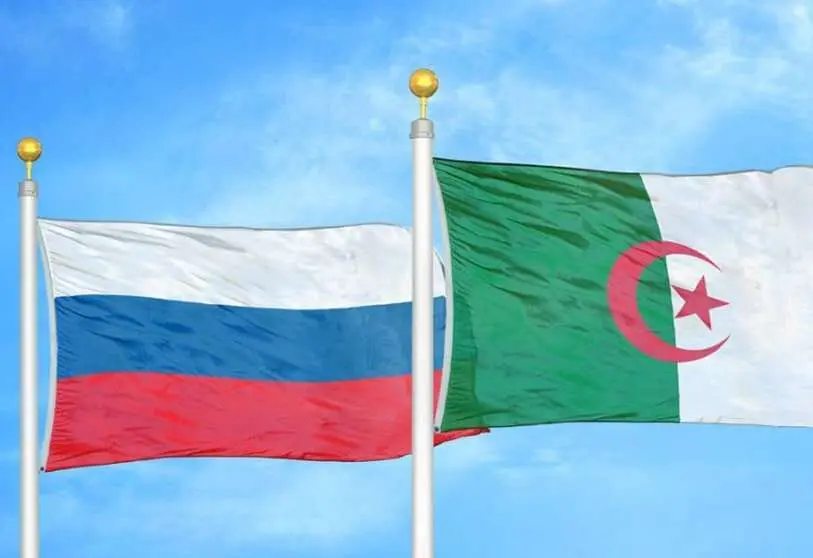Russia and Algeria to conduct military exercises on the border with Morocco

A new military cooperation between Moscow and Algiers further deepens relations between the two countries. Russia and Algeria are to carry out joint anti-terrorist exercises on the border with Morocco, at a time when Russia is staging a military invasion of Ukraine. Russia's state-run RT news agency announced that these 'manoeuvres' are scheduled for November this year.
These exercises, however, are not the first joint exercises between Moscow and Algiers. The inaugural exercises were held last October in the North Ossetia region with the aim of increasing the effectiveness of both armies, as well as optimising the readiness of their leadership bodies to continue joint cooperation in the fight against terrorism.

The first planning conference was held in the Russian city of Vladikavkaz, the capital of the Republic of Ossetia, to prepare for the joint Russian-Algerian anti-terrorist manoeuvres scheduled for November of this year," they said in a statement.
According to the Kremlin, the new manoeuvres will be carried out at the Hammaguir base, located in the Algerian province of Béchar, near the border with Morocco and 700 kilometres from Melilla. According to the communiqué, the two armies are said to have coordinated the choice of the exercise site and the organisation of the logistics.
They also added that these manoeuvres will consist of tactical movements to "search for, detect and destroy illegal armed groups". They also said that 80 Russian soldiers will take part in the exercise, along with units from the armed forces of Algeria, Egypt, Kazakhstan and Pakistan.

The fact that the province of Béchar has been chosen as the setting is no trivial matter. Russia is still trying to expand its influence in North Africa in an attempt to strengthen its presence on the continent. This coincides with the presence of Wagner mercenaries in countries such as Mali, Libya, Mozambique and the Central African Republic.
In addition, Algeria's expansionist desires in the region clash head-on with Morocco's interests. In this context, both countries are vying to be the most influential powers in the north of the continent, something that Russia is aware of and which serves as a prelude to strengthening its dominance.

Relations between Russia and Algeria continue to grow in the midst of Russia's invasion of Ukraine. This week Moscow hosted a meeting between Algeria's Director General for Documentation and Foreign Security, Noureddine Makri, and the Secretary of the Russian Security Council, Nikolai Patrushev, one of the Kremlin's most influential figures.
Similarly, Patrushev held a series of meetings with Russian Foreign Minister Sergei Lavrov on the same day that he reportedly received the President of the Algerian National People's Assembly, Brahim Broughali. The meeting between the two representatives is said to have strengthened the "strategic" and "profound" partnership between the two countries, and discussed issues related to the energy crisis that Europe is currently experiencing as a result of the Ukrainian conflict.

In this respect, Moscow continues to supply gas to European countries that are highly dependent on Russian gas, especially those that form part of the Eastern European region. In the same vein, Algeria, a country rich in hydrocarbons, is one of the main suppliers of gas to countries such as Spain and Italy. However, the crisis in Ukraine and the recent moves by Pedro Sánchez recognising Morocco's sovereignty over Western Sahara have led to a cooling of trade relations with Algiers, although the Spanish government maintains that relations with Algiers are 'strategic, priority and reliable'.
In this respect, Algeria has already announced that it will maintain gas prices equitably for all its clients, except Spain. However, it has not yet officially announced what the prices set for Spain will be, nor how this situation will affect its supply.
In addition to the international manoeuvres and in the context of the Russian invasion, Moscow has begun large-scale manoeuvres of the Strategic Missile Forces, exercises that have taken place more than a thousand kilometres away from the Ukrainian border.

More than 3,000 troops and 300 combat teams took part in the exercises, with the aim of training for "nuclear containment" in the event of possible aggression against Russia.
These forces have an arsenal of Yars missile complexes, which are capable of destroying targets 11,000 kilometres away. They also have Voyevoda, Stilet, Topol-M and Avangard missile systems. The latter missiles are capable of developing a speed 27 times faster than the speed of sound, demonstrating their high technology and ability to evade aggression.

According to the Russian Defence Ministry, "the main purpose of the exercises is to improve the teamwork of the military leadership bodies, to assess the practical readiness of the missile unit command and officers (...) and the combat, organisational and general supply capabilities of the troops".
These arms threats have led NATO countries to increase their defence budgets in order to safeguard the interests of the Treaty and to ensure the defence of the values that unite NATO countries and EU member states in an attempt to increase defence budgets and arms build-up.








